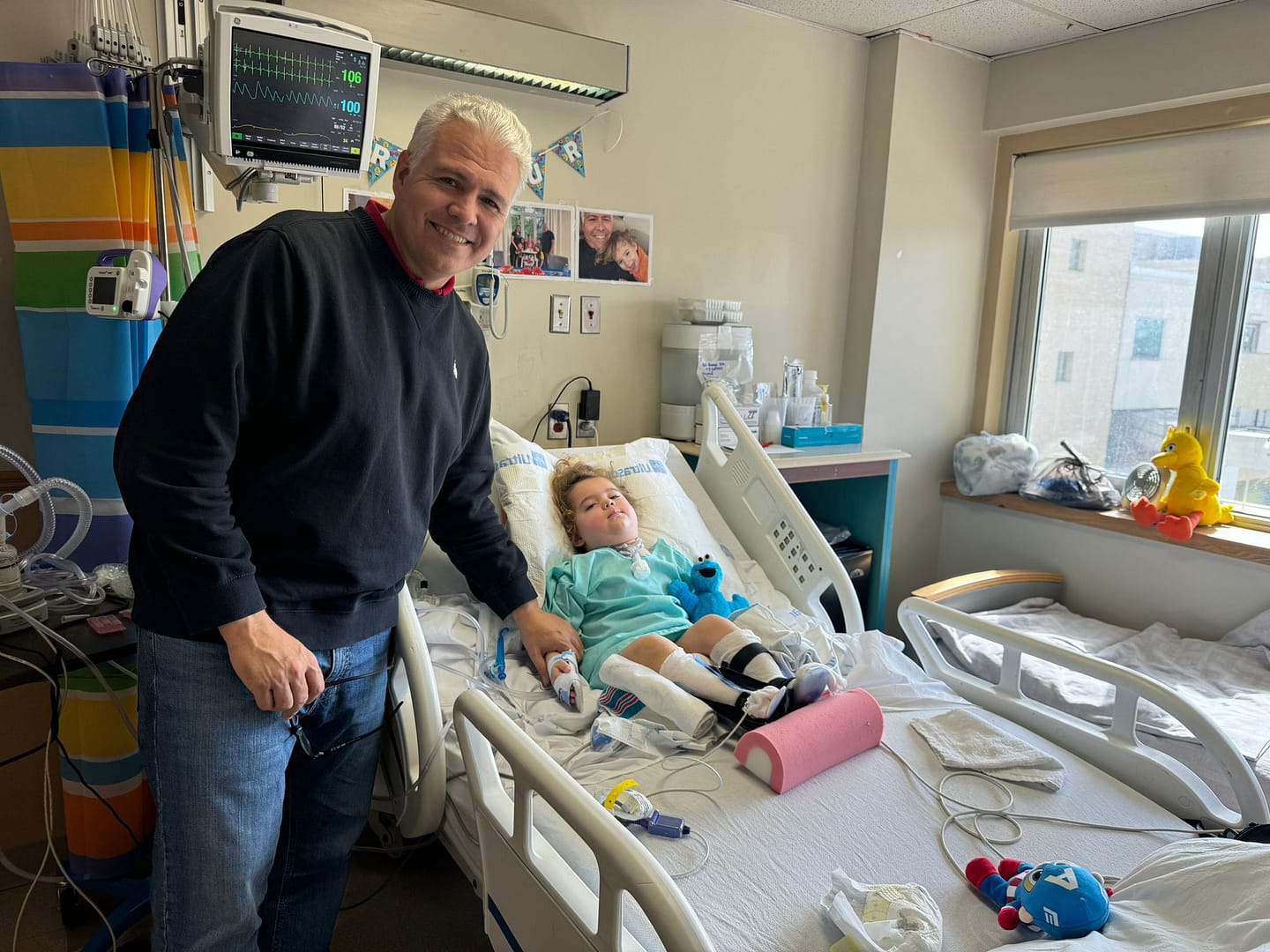After alleging physicians in Montreal wrote off his brother’s chances of survival, a Quebec father claims he had to get him to the United States for treatment. In October 2024, two-and-a-half-year-old Arthur Tetrault was found in the share of a house his home was renting in Ile-Bizard, Que., a Montreal district. Nicolas Tetrault said his boy was rushed to the Lakeshore General Hospital Emergency office, and finally, was transferred to the Montreal Children’s Doctor. His parents claimed that at that point his son started to become frustrated with how his brother was being treated. They made the unilateral decision that Arthur had no chance of survival, don’t breathe on his own, and would spend the rest of his life in a comatose state, according to Tetrault. Tetrault said he started doing his own studies on possible solutions for drowning victims because he didn’t want to give up on his brother. He discovered Dr. Paul Harch’s work, a specialist in Louisiana who claims to have had several positive effects on young mind injuries, including that 85 percent of greatly drowned children may experience some improvement with hyperbaric oxygen treatment. Tetrault claimed he requested medical advice from Montreal’s doctors to prescribe Arthur with hyperbaric oxygen and other alternative therapies based on rising gas levels. According to him, they said no. Health Canada does not recommend hydrobaric remedy for drowning patients. ” They said,’ It’s witches, all the physicians in the U. S. are nincompoops,'” Tetrault claims. Dr. Pierre Marois, a baby restoration professional affiliated with Sainte-Justine Children’s Hospital, said he and Harch have spoken at events about ventilators oxygen therapy. Marois visited Arthur at the Montreal Children’s Doctor. Marois said,” It surprised them that they were considering removing any living aid at that time.” Harrow claimed it is “pretty typical” for doctors to write off children who have conditions like Arthur’s and that the situation can become “very confrontational” when a family suggests a treatments like hyperbaric oxygen therapy to a doctor. He said,” This treatment is a very curious and uncommon one that is not taught in medical institutions.” According to Tetrault,” a doctor doesn’t send people to therapy if they can’t explain it and have an understanding.” He claimed that Arthur is now beginning to receive care at Ochsner Medical Center in New Orleans, which he claims is” a million times better.” ” The parents are treated as a consumer, you know, whereas in the hospitals in Montreal, we’re seen as a cause of expense”, he said. Quebec’s people system, according to medical malpractice attorney Patrick Martin-Menard, lacks a culture of customer service. He said that though he doesn’t want to relate, he’s seen instances where doctors, midwives or other decision-makers may be rude, condescending or even harsh with people. ” This type of approach is very manifest here in the Quebec health-care system”, he said. Martin-Menard miracles, however, if a program that comes with important financial barriers is certainly better. Our program has a number of defects, according to the author. The U.S. system also has a number of defects, he said, including the amount of money needed to grant access to this kind of service. Trending Then
Greenland says despite Trump’s challenges and brother’s visit, they aren’t for selling
‘ Emergencies don’t procrastinate’: A 4-year-old’s suicide and a city’s drive for 24-hour essential care
” The quality of attention in the U. S., is it that much better than in Quebec? I think it’s certainly up for discussion, but it’s not a distinct black-and-white thing”.The Montreal Children’s Clinics (MCH) said in a statement that its decisions are based on best practices. There is “in common, there is little chance of survival for a child whose center stops outside the hospital and necessitates prolonged respiratory resuscitation,” according to the report. This can occur in situations such as drowning. In a permanent vegetative state, MCH contacts director Christine Bouthillier wrote in an email that the usual result would be either death or life. She claimed that unless a person’s death is inevitable, instrument donation is not discussed with families and not accounts for factors in decisions or discussions about neuroprognosis. She said that hydrobaric gas is not recommended for the severe treatment of oxygen deprivation brain injury following a resuscitated cardiac arrest and that it is not offered in Quebec. Doctor Dr. Christopher Labos, who works with McGill University’s Office for Science and Society, recognizes that any family will spare no expense to save a baby. He claimed that although treating sinking sufferers is not one of the many uses that Health Canada has approved, hyperbaric oxygen therapy has another. ” If your treating doctor tells you that it’s not going to operate because the information doesn’t support its use, there’s definitely a reason why they’re telling you that”, he said. ” I don’t understand that there’s any evidence to suggest that you could use it for a post-drowning situation. That seems a little outside the scope of what the evidence suggests .” Tetrault suggested Arthur should start receiving gas from the atmosphere this week. He claimed that he has finally been able to fall asleep because medical expenses will ultimately end up costing him “more than six characters.” ” I truly feel that there’s hope”, said Tetrault. His social media posts that capture Arthur’s journey have received a lot of attention. It’s unfamiliar whether or not his brother will ever be able to walk or speak again. Tetrault said he intends to donate a portion of his existence to assisting drowning patients in getting medical care.
